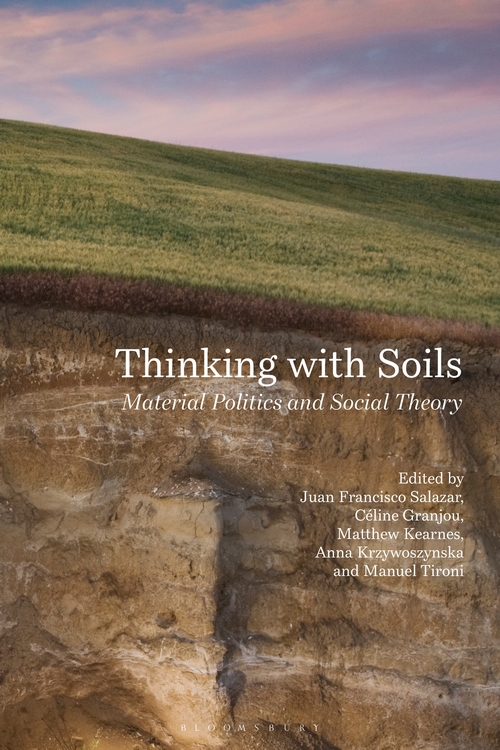A hastily compiled list of references on methods in STS, and (critical) STS reflections on methods.
Asdal, K. 2018: “Interested Methods” and “Versions of Pragmatism”. Science, Technology, & Human Values 43(4): 748-55.
Ballestero, A., and Winthereik, B. R., eds. 2021: Experimenting with Ethnography: A Companion to Analysis. Durham, N.C.: Duke University Press.
Bloor, D. 1991: Knowledge and social imagery. 2nd ed. Chicago: University of Chicago Press.
Calvert, J. 2013: Collaboration as a research method? Navigating social scientific involvement in synthetic biology. In: N Doorn, D Schuurbiers, I van de Poel and M. E. Gorman (eds.) Early Engagement and New Technologies: Opening Up the Laboratory. Philosophy of Engineering and Technology, Volume 16, Dordrech: Springer, pp. 175-94.
———. 2023: A Place for Science and Technology Studies: Observation, Intervention, and Collaboration. Cambridge: MIT Press.
Clarke, A. E., and Star, S. L. 2008: The social worlds framework: a theory/methods package. In: E. J Hackett, O Amsterdamska, M Lynch and J Wajcman (eds.) The Handbook of Science and Technology Studies – Third Edition. Cambridge, M.A.: MIT Press.
Dumit, J. 2014: Writing the Implosion: Teaching the World One Thing at a Time. Cultural Anthropology 29(344–362).
Garfinkel, H. 1967: Studies in Ethnomethodology. Edlewoods Cliffs, N.J.: Prentice Hall.
Hyysalo, S., Pollock, N., and Williams, R. A. 2019: Method Matters in the Social Study of Technology: Investigating the Biographies of Artifacts and Practices. Science & Technology Studies 32(3): 2-25.
Latour, B. 1987: Science in Action. Cambridge: Harvard University Press.
———. 2005: Reassembling the Social: An Introduction to Actor-Network-Theory. Oxford: Clarendon.
Latour, B., and Woolgar, S. 1979: Laboratory Life: The Social Construction of Scientific Facts. Beverly Hills: Sage.
Law, J. 1986: On the methods of long-distance control: vessels, navigation and the Portuguese route to India. Power, action and belief: A new sociology of knowledge: 234-63.
Law, J. 2004: After Method: Mess in Social Science Research. London: Routledge.
Law, J., and Ruppert, E. 2013: The Social Life of Methods: Devices. Journal of Cultural Economy 6(3): 229-40.
Law, J., and Ruppert, E., eds. 2013: The Device: The Social Life of Methods: Special issue of The Journal of Cultural Economy, 6(3).
Leurs, K. 2017: Feminist Data Studies: Using Digital Methods for Ethical, Reflexive and Situated Socio-Cultural Research. Feminist Review 115(1): 130-54.
Lippert, I., and Mewes, J. S. 2021: Data, Methods and Writing. Science & Technology Studies 34(3): 2-16.
Lury, C., and Wakeford, N., eds. 2012: Inventive Methods: The Happening of the Social. Abingdon, Oxon: Routledge.
Lynch, M., and Peyrot, M. 1992: Introduction: A Reader’s Guide to Ethnomethodology. Qualitative Sociology 15(2).
Marres, N. 2015: Why Map Issues? On Controversy Analysis as a Digital Method. Science, Technology, & Human Values 40(5): 655-86.
Marres, N., and Gerlitz, C. 2016: Interface Methods: Renegotiating Relations between Digital Social Research, STS and Sociology. The Sociological Review 64(1): 21-46.
Michael, M. 2012: De-signing the object of sociology: toward an ‘idiotic’ methodology. The Sociological Review 60(S1): 166-83.
Mulkay, M. 1974: Methodology in the sociology of science: Some reflections on the study of radio astronomy. Social Science Information 13(2): 107-19.
Orthia, L. A., and Roberson, T., eds. 2023: Queering Science Communication : Representations, Theory, and Practice, Contemporary issues in science communication. Bristol: Bristol University Press.
Ramírez-i-Ollé, M. 2019: Friendship as a scientific method. The Sociological Review 67(2): 299-317.
Reddy, E. 2023: ¡Alerta!: Engineering on Shaky Ground. Cambridge: MIT Press.
Rogers, R. 2009: The End of the Virtual – Digital Methods. Amsterdam: Vossiuspers UvA.
Ruppert, E., Law, J., and Savage, M. 2013: Reassembling social science methods: the challenge of digital devices. Theory, Culture & Society 30(4): 22-46.
Subramaniam, B. 2023: Methodologies for the Pressed: Cartographies for Adisciplinary Sciences. Science, Technology and Society 28(1): 68-76.
Thorsen, L. M. 2016: The Energy Walk: Experimenting with Aesthetic Methods in STS? Science as Culture 25(1): 141-48.
Vertesi, J., and Ribes, D. 2019: digitalSTS : a field guide for science & technology studies. Princeton, New Jersey: Princeton University Press.
Wilkie, A., Michael, M., and Plummer-Fernandez, M. 2015: Speculative method and Twitter: Bots, energy and three conceptual characters. The Sociological Review 63(1): 79-101.



